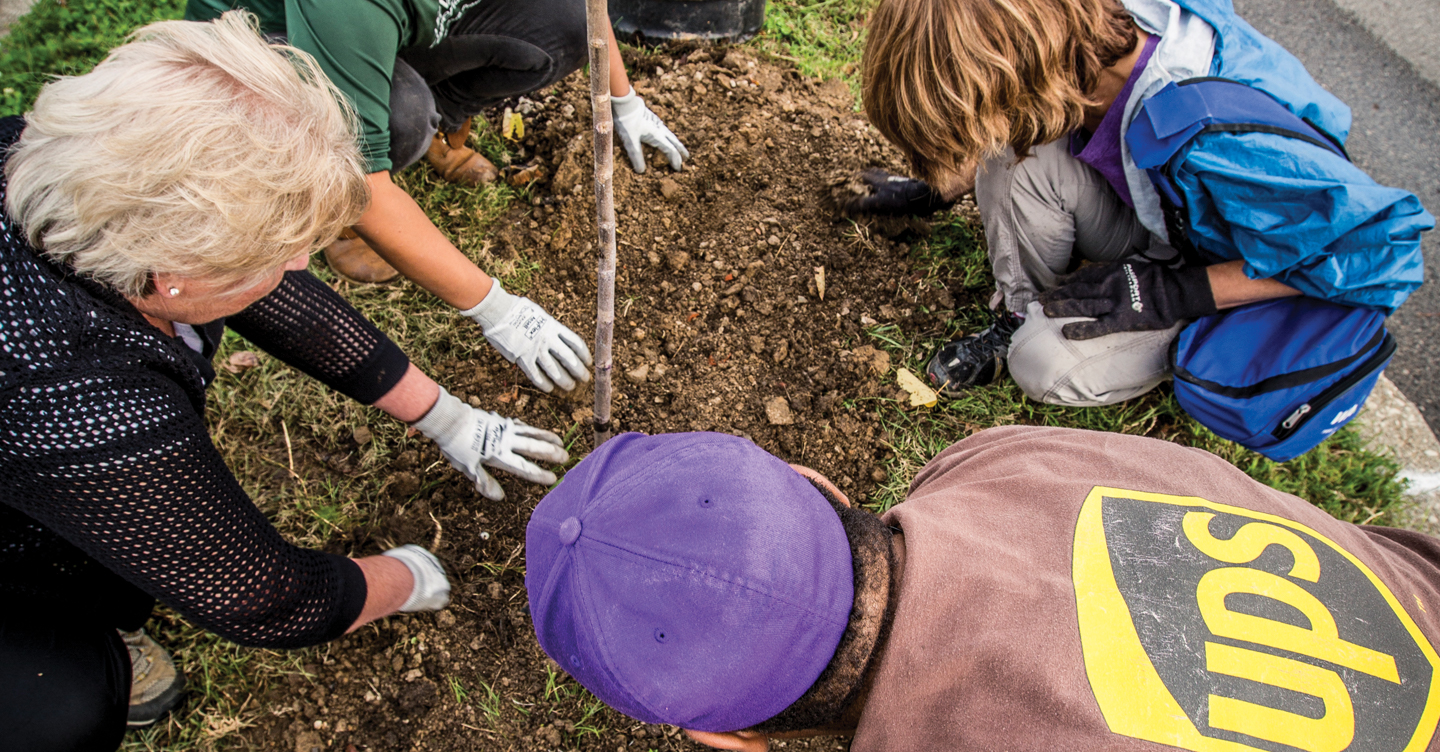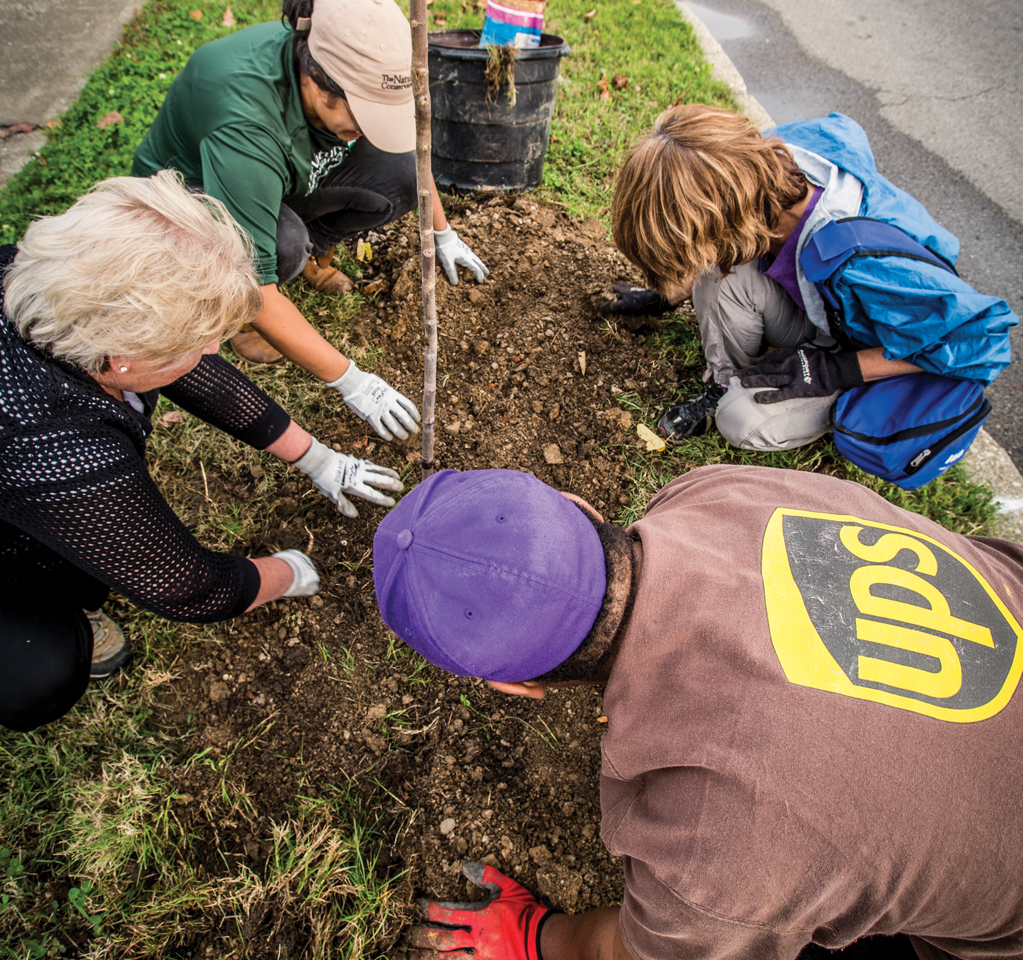“The best time to plant a tree was 20 years ago. The second best time is now.”
– Chinese proverb
According to studies, residents in low-income neighborhoods in Louisville, Kentucky have lower levels of tree coverage, leading to increased exposure to extreme heat and a lower life expectancy (up to 13 years) compared to middle and upper income neighborhoods.
The city consistently has one of the highest levels of air pollution in the U.S. and is undergoing an urban greenery crisis, losing 54,000 trees a year.
As part of its goal to plant 50 million trees around the world by 2030, The UPS Foundation is supporting the Green Heart project – a research project with The Nature Conservancy that includes planting 8,000 trees, plants and shrubs in Louisville.
The ambitious project will examine the effects of planting trees in underserved communities to see whether the added canopy improves air quality, reduces mental stress and decreases the risk of obesity, diabetes and heart disease.
The study will also look to see if there’s an increase in outdoor activities and a sense of community in the neighborhood.
Green Heart Louisville - Watterson Expressway Plantings from The Nature Conservancy on Vimeo.
Trees are extremely important to the environment. Besides giving off oxygen, trees improve air quality by filtering harmful dust and pollutants such as ozone, carbon monoxide and sulfur dioxide from the air.
Studies and findings, including those by the Journal of the American Heart Association, show that living in a leafy, green neighborhood may lead to lower levels of some markers for heart disease and stroke.
This five-year collaborative effort will allow Louisville leaders to make decisions on how to connect nature with the health and well-being of its citizens.
“The UPS Foundation is proud to support The Nature Conservancy’s forward-thinking and evidence-based research,” said Nikki Clifton, president of social impact and The UPS Foundation.
Though Green Heart is a unique initiative, it’s just one of a number of tree planting projects in underserved communities UPS is supporting globally.
This month, UPS is taking part in a massive project in Uganda to plant more than 400,000 trees to fight the effects of climate change and set up sustainable processes that will have a long-term impact, benefitting the environment, local famers, and the communities they’re serving.
Due to the pandemic, a lot of projects in 2020 were delayed. This year, UPS is supporting more than 50 environmental initiatives worldwide with more than 25 in urban areas. Partners for these projects include Arbor Day Foundation, Earth Day Network, Keep America Beautiful, The Nature Conservancy, National Park Foundation, the Student Conservation Association and World Wildlife Fund.
“UPS recognizes that Earth Month is highlighted in April, but we believe environmental initiatives, particularly those affecting underserved communities, should be spotlighted year round to help build safer, more inclusive and resilient communities,” Nikki said.
| In the next 40 years, what can 50 million trees do? |
|
As a people-led organization driven by a strong purpose, The UPS Foundation delivers what matters. Check out other Social Impact stories below.


